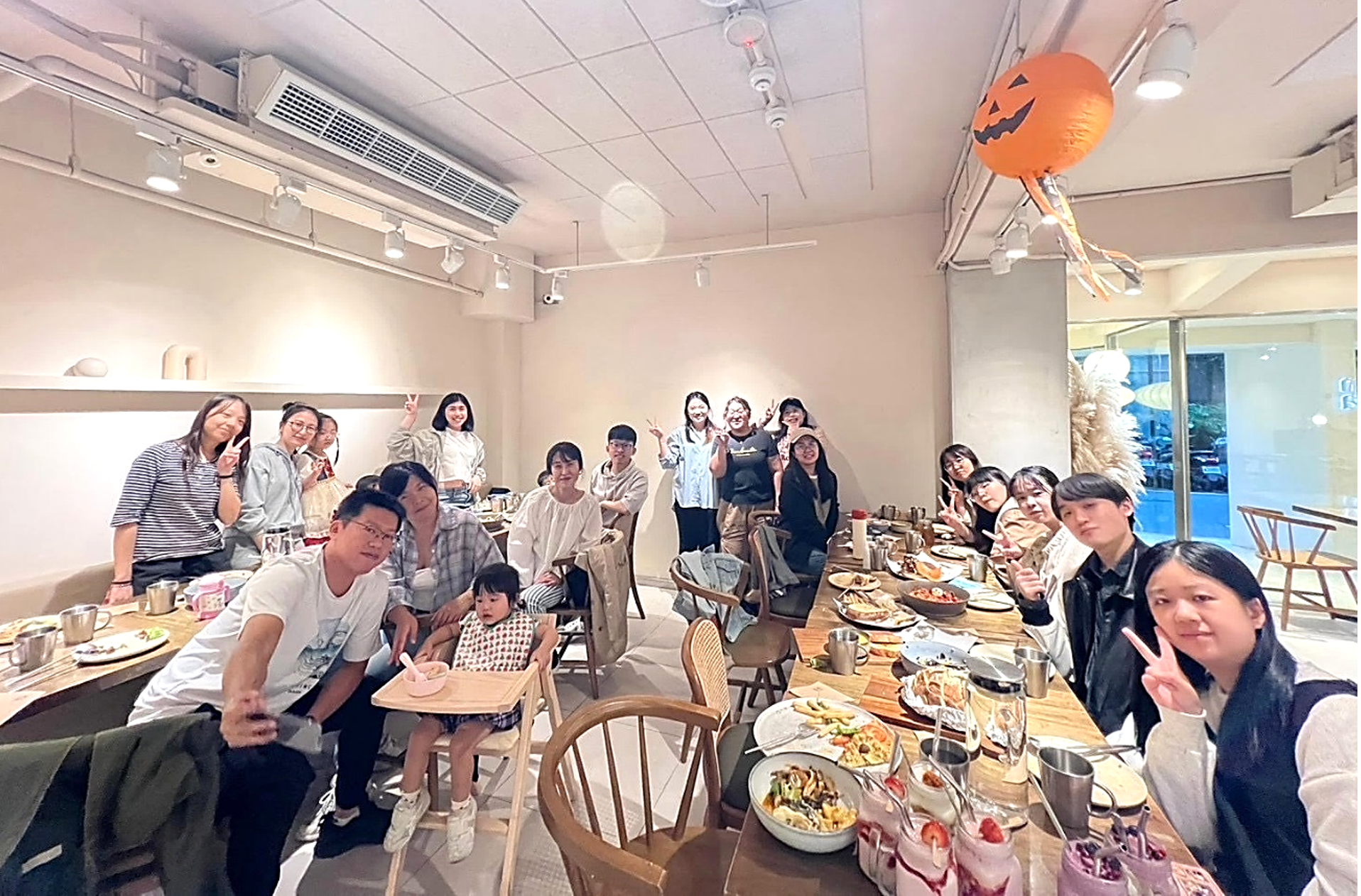職稱 (Job Title):教授 (Professor)
主要學歷 (Education) :陽明大學口腔醫學生物所博士 (Ph.D., Institute of Oral Biology, National Yang Ming University)
分機號碼 (Extension Number):5113
電子郵件帳號 (Email Address):d49417002@gmail.com
ORCID:https://orcid.org/0000-0003-4995-297X
研究室 (Laboratory):癌症轉譯醫學 (Cancer Translational Medicine)
研究專長 (Research Specialties)
Oncology、精準健康 (Precision Health)、Translational research
研究概要 (Research Summary)
本實驗室以解析癌症發生與惡化的分子機制為主軸,從機轉出發,進一步篩選並驗證具臨床轉譯潛力的治療標的與介入策略。以整合分子生物學、奈米技術與藥理學等研究方法,聚焦腫瘤異質性、關鍵訊號調控與抗藥性等臨床治療的核心瓶頸,建立可被系統性驗證、並能推進至應用端的研究架構。研究方向包括:
- 發展奈米藥物遞送與創新治療平台,以提升藥效與安全性。
- 探討肺癌惡化相關分子路徑,並釐清標靶治療耐受與抗藥性形成機制。
- 以天然物活性成分為基礎,開發具潛力的抗癌候選策略,並建立其作用機轉與關鍵證據。
- 結合整合組學與生醫資料分析,尋找治療標靶及可用於預後與治療反應評估的生物標記。
透過跨領域整合與驗證,期望提升精準醫療的治療成效,並加速研究成果走向臨床與產業應用。
The main focus of the laboratory research is to investigate the mechanism of cancer drug resistance and to select active drugs for therapeutic use. The research strategy is to use the established platform of various cancer cell strains to explore carcinogenesis and screen drugs with anticancer activity, use animals and mice as the preclinical test model, and then analyze the mechanism of carcinogenesis or the gene or protein profiles that drugs may act on through the somatic platform, bioinformatics software, and pharmacogenetic profiling databases; in addition, the somatic platform is also used for the development of biomarkers in order to achieve the goal of improving the treatment of cancer effectively.
研究方向 (Research Directions)
- 奈米技術驅動之精準醫療與藥物遞送平台 (Nanotechnology-driven Precision Medicine and Drug Delivery Platform)
- 藥物研發與癌症治療策略,含抗藥機制與聯合治療 (Drug Development and Cancer Therapeutic Strategies, including Resistance Mechanisms and Combination Therapies)
- 多體學整合分析於新型標靶及生物標誌開發 (Multi-omics Integrated Analysis for Novel Target and Biomarker Development)
最近研究主題 (Recent Research Topics)
- 肺癌標靶藥物抗藥性產生機轉。 (Mechanisms of Resistance to Targeted Therapies in Lung Cancer.)
- 運用天然物活性成分對抗肺癌標靶藥物抗藥性。 (Utilizing Natural Bioactive Compounds to Combat Drug Resistance in Lung Cancer.)
- 研製細胞膜奈米劑型用於癌症靶向治療。 (Development of Cell Membrane Nano-formulations for Targeted Cancer Therapy.)
論文著作:五年內著作目錄 (Selected Papers)
- Chin-Chuan Chen#, Chi-Yuan Chen#, Li-Fang Chou, Chau-Ting Yeh, Yi-Tsen Liu, Yu-De Chu, Hsin-Wei Lin, Kai-Yin Chen, Cheng-Chia Yu, Tong-Hong Wang (#These authors contributed equally to the work) (2025 Apr). Corylin attenuates oral squamous cell carcinoma progression through c-Myc inhibition. Journal of Dental Sciences. 20(4):2322-2331.
- Tong-Hong Wang, Li-Fang Chou, Chin-Chuan Chen, Chau-Ting Yeh, Yi-Tsen Liu, Yu-De Chu, Hsin-Wei Lin, Kai-Yin Chen, Cheng-Chia Yu*, Chi-Yuan Chen* (2025 Mar). 4’-hydroxywogonin inhibits oral squamous cell carcinoma progression by targeting Gas6/Axl signaling axis. Journal of Dental Sciences. 20(3):1639-1647.
- Chi-Yuan Chen, Kuo-Yen Huang, Chin-Chuan Chen, Ya-Hsuan Chang, Hsin-Jung Li, Tong-Hong Wang, Pan-Chyr Yang (2025 Jan). The role of PM2.5 exposure in lung cancer: mechanisms, genetic factors, and clinical implications. EMBO Molecular Medicine. 17(1):31-40.
- Jia-You Fang, Kuo-Yen Huang, Tong-Hong Wang, Zih-Chan Lin, Chin-Chuan Chen, Sui-Yuan Chang, En-Li Chen, Tai-Ling Chao, Shuenn-Chen Yang, Pan-Chyr Yang, Chi-Yuan Chen* (2024 Apr). Development of nanoparticles incorporated with quercetin and ACE2-membrane as a novel therapy for COVID-19. Journal of Nanobiotechnology. 22(1):169.
- Chin-Chuan Chen#, Chi-Yuan Chen#, Chau-Ting Yeh, Yi-Tsen Liu, Yann-Lii Leu, Wen-Yu Chuang, Yin-Hwa Shih, Li-Fang Chou, Tzong-Ming Shieh, Tong-Hong Wang (#These authors have contributed equally to this work) (2023 Nov). Corylin Attenuates CCl4-Induced Liver Fibrosis in Mice by Regulating the GAS6/AXL Signaling Pathway in Hepatic Stellate Cells. International Journal of Molecular Science. 24(23):16936.
- Tong-Hong Wang, Kuo-Yen Huang, Chin-Chuan Chen, Ya-Hsuan Chang, Hsuan-Yu Chen, Chuen Hsueh, Yi-Tsen Liu, Shuenn-Chen Yang, Pan-Chyr Yang, Chi-Yuan Chen* (2023 Jun). PM2.5 promotes lung cancer progression through activation of the AhR-TMPRSS2-IL18 pathway. EMBO Molecular Medicine. 15(6):e17014.
- Tong-Hong Wang, Yann-Lii Leu, Chin-Chuan Chen, Hsin-Jung Li, Shuenn-Chen Yang, Kuo-Yen Huang, Chi-Yuan Chen* (2022 May). Psorachromene induces apoptosis and suppresses tumor growth in NSCLC cells harboring EGFR L858R/T790M/C797S. Phytotherapy Research. 36(5):2116.
- Chin-Chuan Chen#, Chi-Yuan Chen#, Shu-Fang Cheng, Tzong-Ming Shieh, Yann-Lii Leu, Wen-Yu Chuang, Kuang-Ting Liu, Shir-Hwa Ueng, Yin-Hwa Shih, Li-Fang Chou, Tong-Hong Wang* (#These authors contributed equally to the work) (2021, Sep). Hydroxygenkwanin Increases the Sensitivity of Liver Cancer Cells to Chemotherapy by Inhibiting DNA Damage Response in Mouse Xenograft Models. International Journal of Molecular Sciences. 22(18):9766.
- Kuo-Yen Huang, Tong-Hong Wang, Chin-Chuan Chen, Yann-Lii Leu, Hsin-Jung Li, Cai-Ling Jhong, Chi-Yuan Chen* (2021, Aug). Growth Suppression in Lung Cancer Cells Harboring EGFR-C797S Mutation by Quercetin. Biomolecules. 11(9):1271.
- Wei-Che Tseng#, Chi-Yuan Chen#, Ching-Yuh Chern#, Chu-An Wang, Wen- Chih Lee, Ying-Chih Chi, Shu-Fang Cheng, Yi-Tsen Kuo, Ya-Chen Chiu, Shih- Ting Tseng, Pei-Ya Lin, Shou-Jhen Liou, Yi-Chen Li, Chin-Chuan Chen* (# These authors contributed equally to this work) (2021, Apr). Targeting HR Repair as a Synthetic Lethal Approach to Increase DNA Damage Sensitivity by a RAD52 Inhibitor in BRCA2-Deficient Cancer Cells. International Journal of Molecular Sciences. 22(9):4422.
- Tong-Hong Wang, Chih-Ching Wu, Kuo-Yen Huang, Yann-Lii Leu, Shuenn-Chen Yang, Ci-Ling Chen, Chi-Yuan Chen* (2021, Jan). Integrated Omics Analysis of Non-Small-Cell Lung Cancer Cells Harboring the EGFR C797S Mutation Reveals the Potential of AXL as a Novel Therapeutic Target in TKI-Resistant Lung Cancer. Cancers. 13, 111.
- Tong-Hong Wang, Chin-Chuan Chen, Yann-Lii Leu, Yun-Shien Lee, Jang-Hau Lian, Hsi-Lung Hsieh, Chi-Yuan Chen* (2020, Dec). Palbociclib induces DNA damage and inhibits DNA repair to induce cellular senescence and apoptosis in oral squamous cell carcinoma. Journal of the Formosan Medical Association. S0929-6646(20)30609.
- Chi-Yuan Chen#, Jia-You Fang#, Chin-Chuan Chen#, Wen-Yu Chuang, Yann-Lii Leu, Shir-Hwa Ueng, Li-Shan Wei, Shu-Fang Cheng, Chuen Hsueh, Tong-Hong Wang* (#These authors have contributed equally to this work) (2020, Aug). 2-O- methylmagnolol, a magnolol derivative, suppresses hepatocellular carcinoma progression via inhibiting class I histone deacetylase expression. Frontiers in Oncology. 10:1319.
- Tong-Hong Wang, Chih-Ching Wu, Kuo-Yen Huang, Wen-Yu Chuang, Chuen Hsueh, Hsin-Jung Li, Chi-Yuan Chen* (2020, Apr). Profiling of subcellular EGFR interactome reveals hnRNP A3 modulates nuclear EGFR localization. Oncogenesis. 9(4):40.
- Chi-Yuan Chen#, Chin-Chuan Chen#, Wen-Yu Chuang, Yann-Lii Leu, Shir-Hwa Ueng, Chuen Hsueh, Chau-Ting Yeh, Tong-Hong Wang* (#These authors have contributed equally to this work.) (2020, Feb). Hydroxygenkwanin Inhibits Class I HDAC Expression and Synergistically Enhances the Antitumor Activity of Sorafenib in Liver Cancer Cells. Frontiers in Oncology. 10:216.
- Yann-Lii Leu, Tong-Hong Wang, Chih-Ching Wu, Kuo-Yen Huang, Yu-Wen Jiang, Yi-Chiung Hsu*, Chi-Yuan Chen* (2020, Feb). Hydroxygenkwanin suppresses non-small cell lung cancer progression by enhancing EGFR degradation. Molecules. 25(4), 941.
實驗室活動剪影 (Laboratory Activities)
